
This is the middle portion of the Craig Berger 2010 Pitchfest tour, which started with the Great American Pitchfest (which I didn’t write a report about, so don’t bother looking) and ends with the Creative Screenwriting Expo next month. I didn’t know what to expect, since this was Inktip’s first Pitchfest (“Pitch Summit”) but hopes were high.
Day 1:
I decided to attend the first day, which consists simply of classes designed to help you either pitch, or learn how to get an agent, or some other aspect of the business. The two classes I attended were “How to Impress Your Agent or Manager” and “How to Get Your Screenplay out of the House and into an Agent’s Hands.” The first class I attended because the teacher was my Writers Boot Camp Fellowship instructor Cameron Graham, and I wanted to show my support.
A good mood was set for me right away when I realized that most of the people surrounding me were old men. Not old like me old, but gray hair, reading glasses and endearing crankiness old. It made me feel like I’m not that far behind after all. This feeling was reinforced when, after some delay and confusion because the room was labeled as a “Writers Boot Camp” class and there was no mention of WBC in the schedule or literature, the old man sitting next to me muttered to me “Feels like Mutt and Jeff in here.” I can’t remember the last time I was too young to get a reference, so I was quite delighted. This guy beautifully continued the old man stereotype when he looked at the young woman in front of us on texting on her cell phone and muttered with contempt: “Probably checking her ‘e-mails.’”
Couple of other entertaining moments: First, at one point another WBC staffer pointed out that agents are worse than pimps because “at least pimps are able to recognize talent.” I found that amusing. Even better was when Cameron decided to do an exercise where he asked someone to come up and pitch an existing movie to him (like “Die Hard” or “Star Wars.”) In a room full of people who were planning to pitch their scripts to a bunch of strangers the next day, no one volunteered. Well, except for one person. Pavo. Pavo came all the way from Poland to pitch his script. It was not until he got up and began to attempt the exercise that we learned that Pavo did not actually speak English. It appeared that he had memorized the pitch for his own project and come to this country with little or no other English. It was unclear whether he knew today was not the pitching day, or how he planned to answer any follow up questions about his project.
The second class was led by Michelle Wallerstein, an agent with 20 years in the business. She did seem to be pretty knowledgeable about Hollywood and gave some positive encouragement (“you think this is bad, the music business would destroy you”). She was selling her book “Mind Your Business” which I probably would have bought but I didn’t bring any cash with me.
Day 2:
Was the actual Pitch day, and there were some hitches. The first, and probably worst, was that the event was two hours late in getting started. Since people usually show up early and stand on one of a number of lines in a crowded ballroom antechamber in these things, and are then expected to project exuberance and enthusiasm to a bunch of producers, this is not a good thing.
Also, I think it’s better to have the numbers designating the lines hanging from the ceiling, rather than on the floor.
One thing they did that I’m still not sure about is have three executives at each table. If you had a project that you planned to pitch to a particular executive, you were actually pitching to two others who you may or may not want to pitch to. The pro of this is that you get to pitch to three times as many executives, in theory. In practice, the Producers, who were supposed to have been grouped by common interest, weren’t always that well matched, for example the table with the guy looking for holiday themed material and the woman who hated Christmas movies, or the one with the woman looking for mainstream features and the woman who was only interested in Canadian Writers. Most annoying was late in the day, when you could wait 20 minutes for a table only to find that the two people who were looking for the type of material you are pitching had left, leaving one person who is looking for something totally different.
In the end, however, I think it worked out, and I did get a lot more people to hear about my projects that I would have in a normal, one on one pitch situation. I got the usual distribution of requests for scripts, requests for synopses, and passes, so we’ll see what happens.
One thing that interested me was people’s approach to the experience. Some people seemed to feel it was an adversarial situation: One woman came out with a smile on her face, looking for a friend to talk to. When she found one, she said “The guy asked me a question, and I was totally ready for him! I NAILED him! I totally kicked him in the balls!” Yeah. That can’t be healthy.
Many people seemed to feel it was a competition to see who could pitch to the most people in a given day. One large man came out in the afternoon looking like he was in a marathon. He was sweating heavily and had a GIANT canteen of water in his hand. He told someone, “I’ve done at least 15 already. I’m gonna hit almost everyone! That Lionsgate line that everyone was trying to get on? PFFT! I pitched them at lunch!” I hope he’ll be able to sell his project from his hospital room after the heart attack.
On the whole, it was a positive experience, and I’m looking forward to see how they iron out the kinks for next year. On to the Expo!














 SPOILER ALERT! If you have not yet seen the last episode of Lost, read no further (if you care about knowing what happens)
SPOILER ALERT! If you have not yet seen the last episode of Lost, read no further (if you care about knowing what happens)



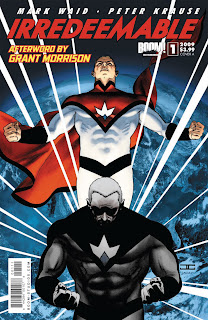













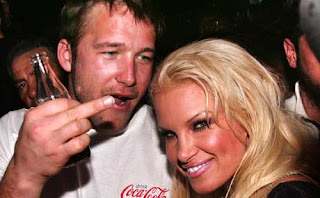
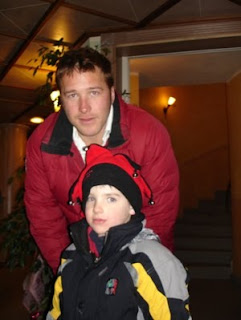



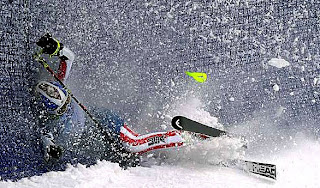

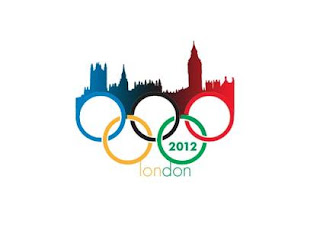


 And I was quite sure that FOX was going to screw it up (the "Coming soon to ABC-TV!" banner on the above comic refers to a short-lived Human Target series on ABC back in 1992 starring
And I was quite sure that FOX was going to screw it up (the "Coming soon to ABC-TV!" banner on the above comic refers to a short-lived Human Target series on ABC back in 1992 starring 


